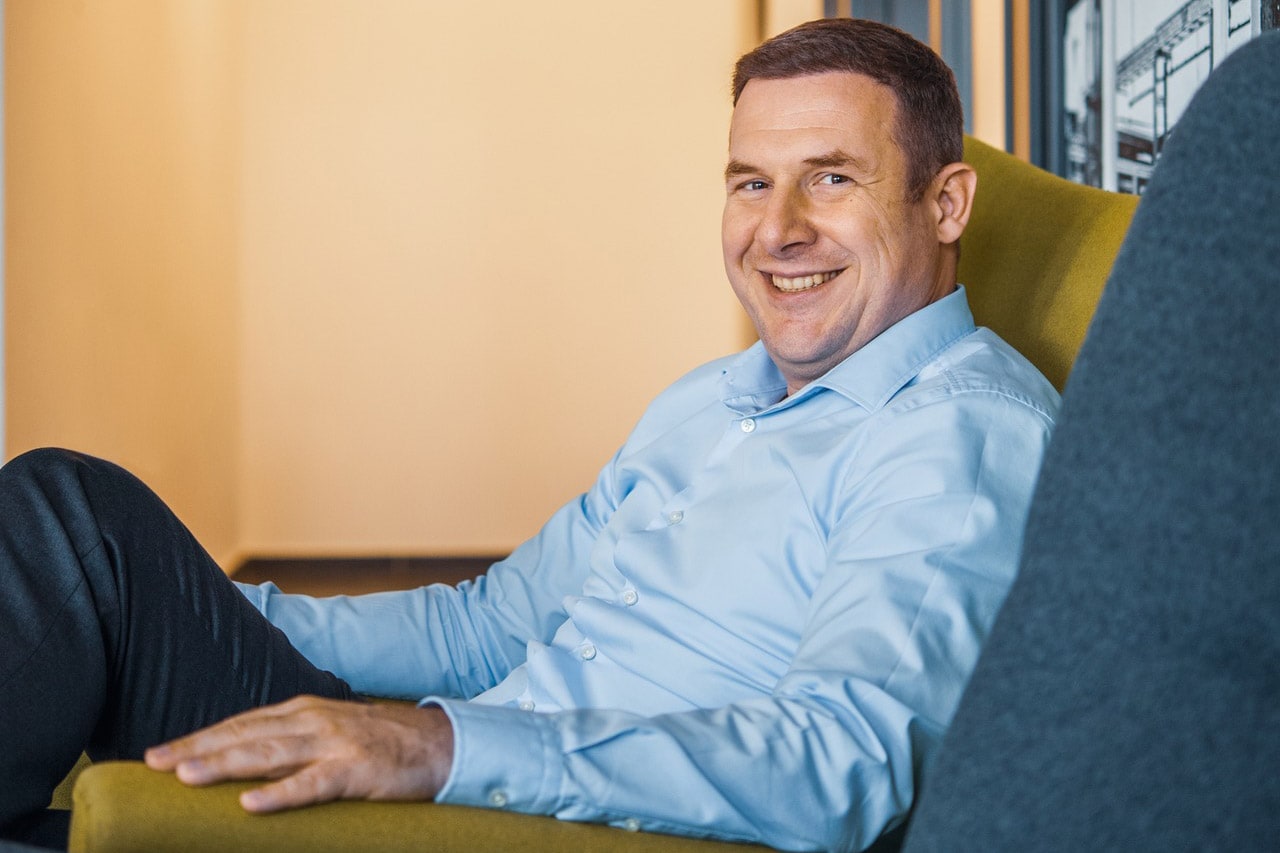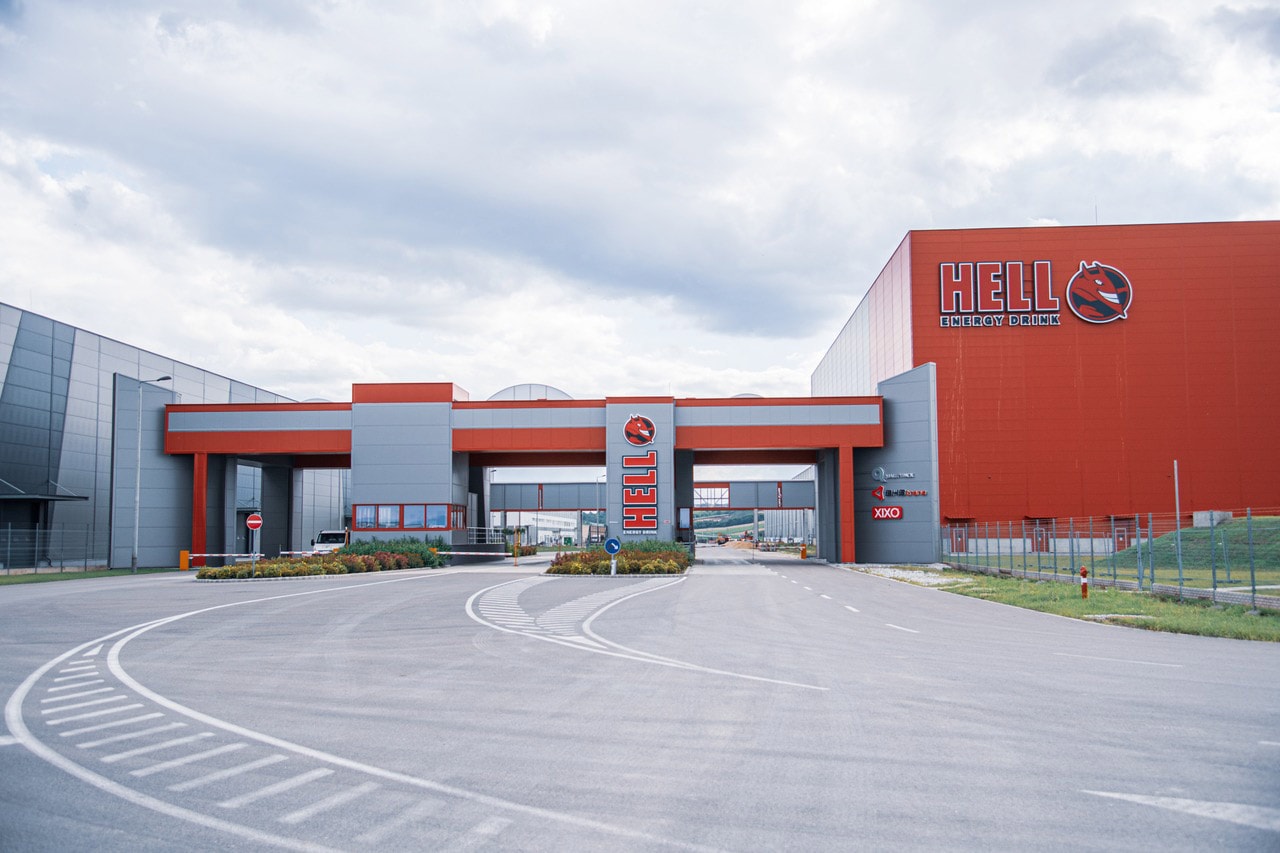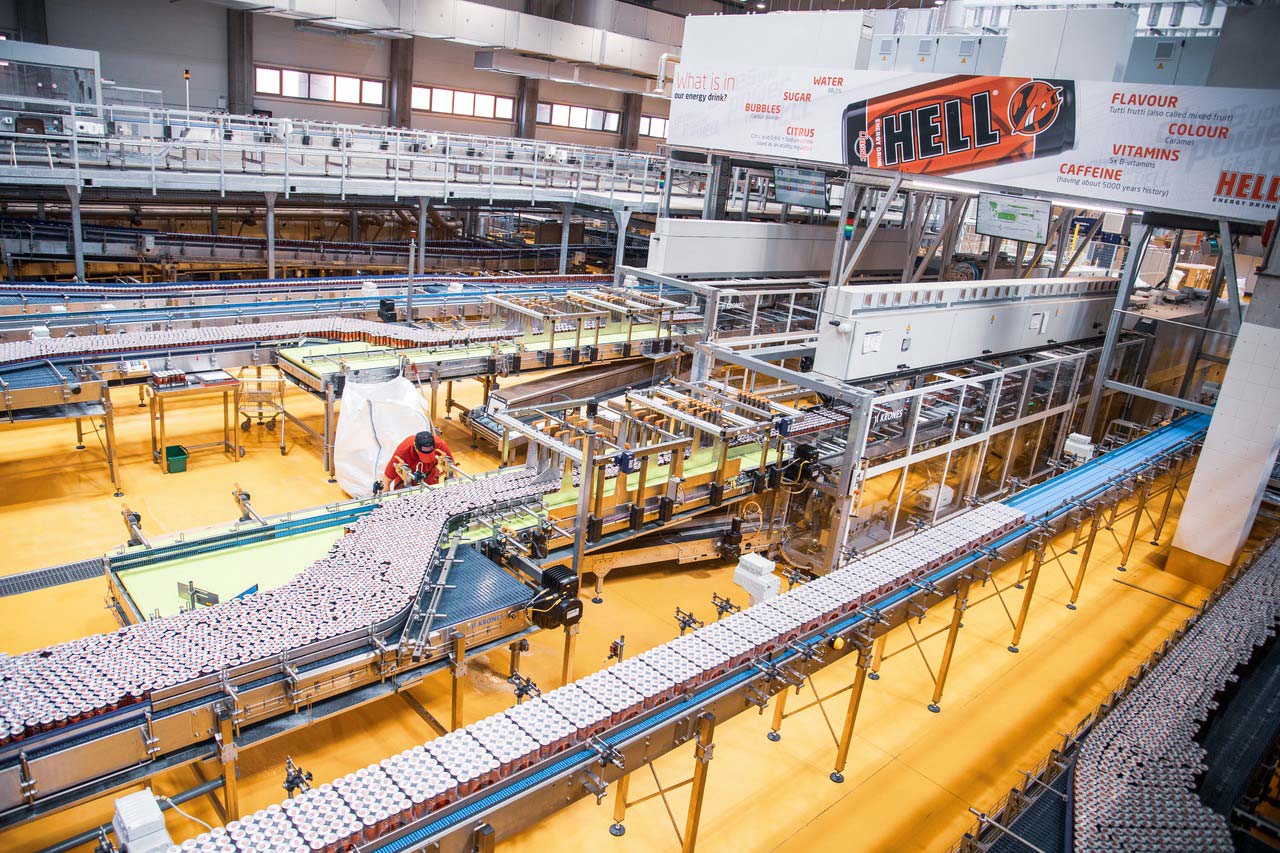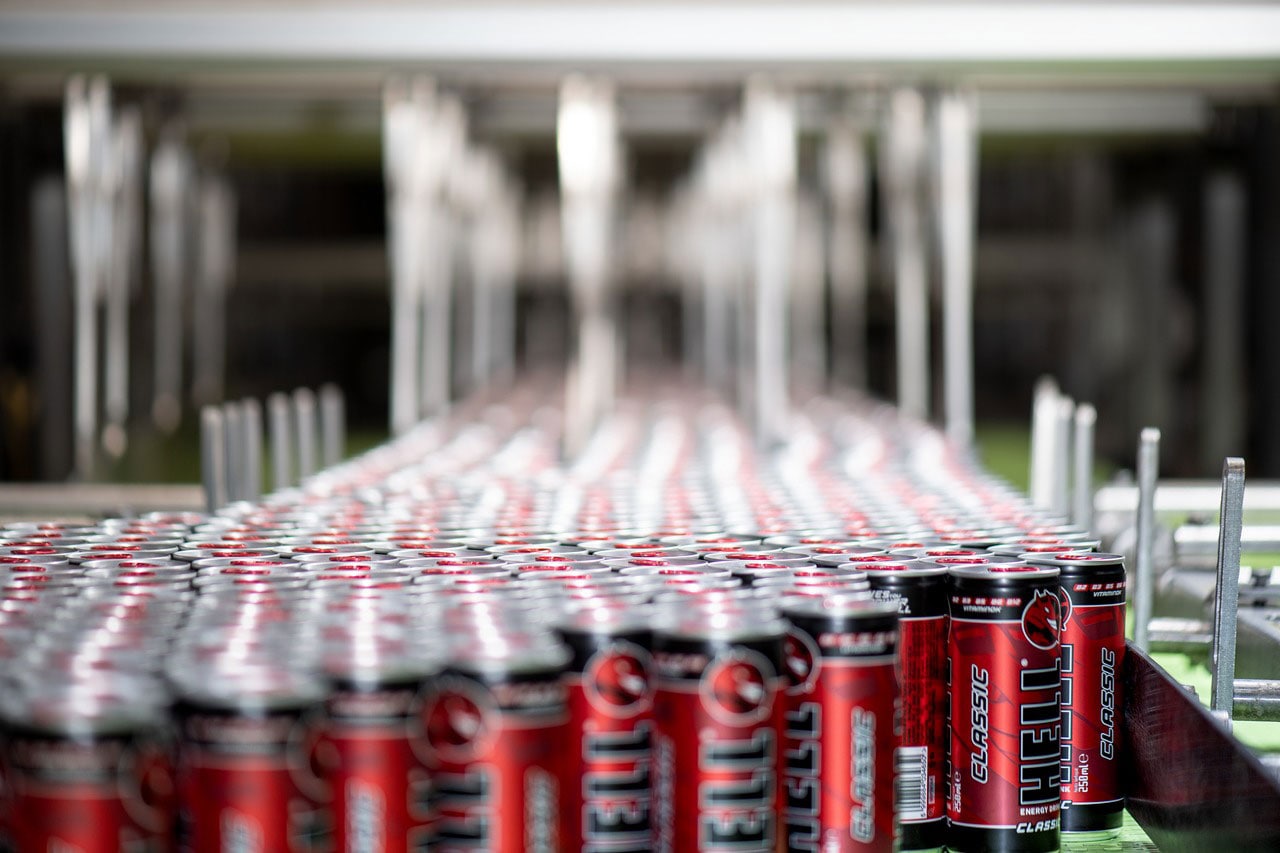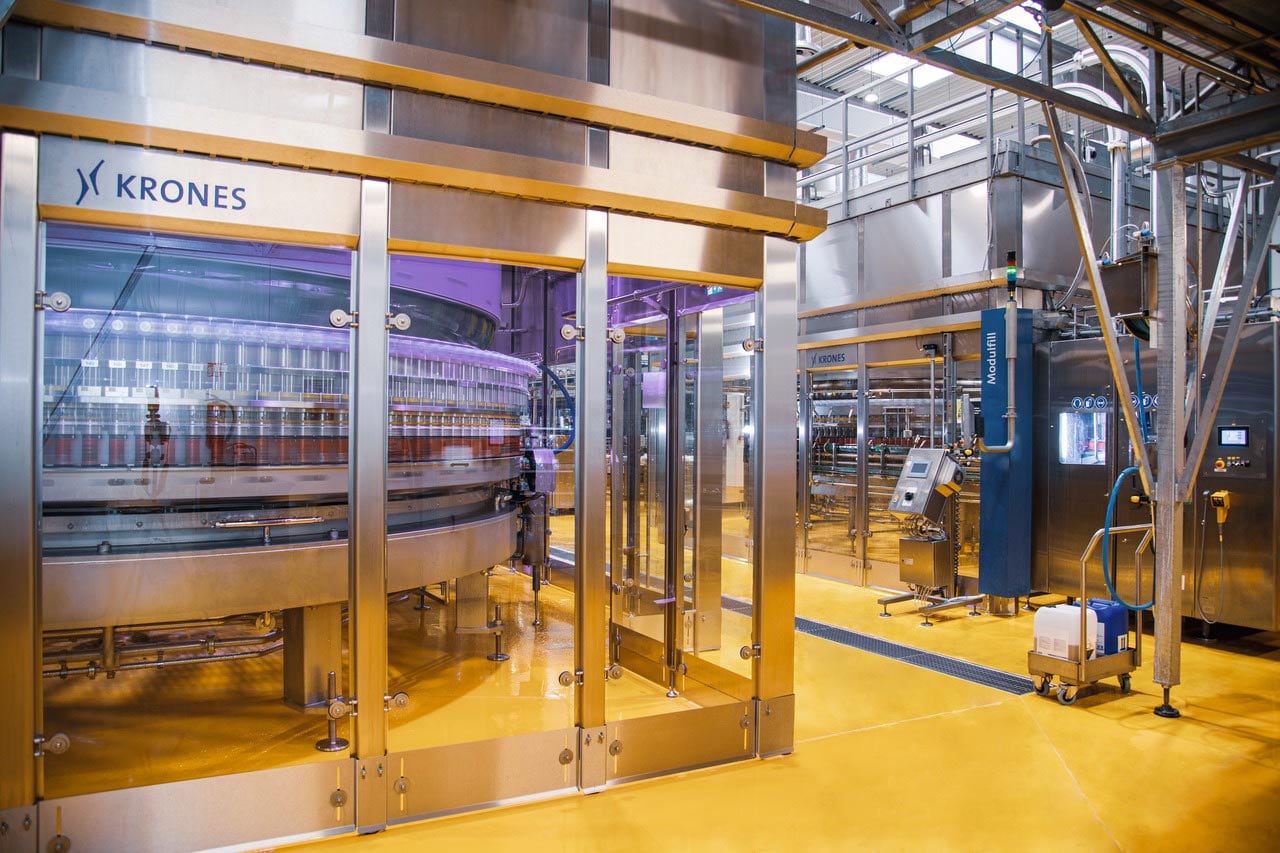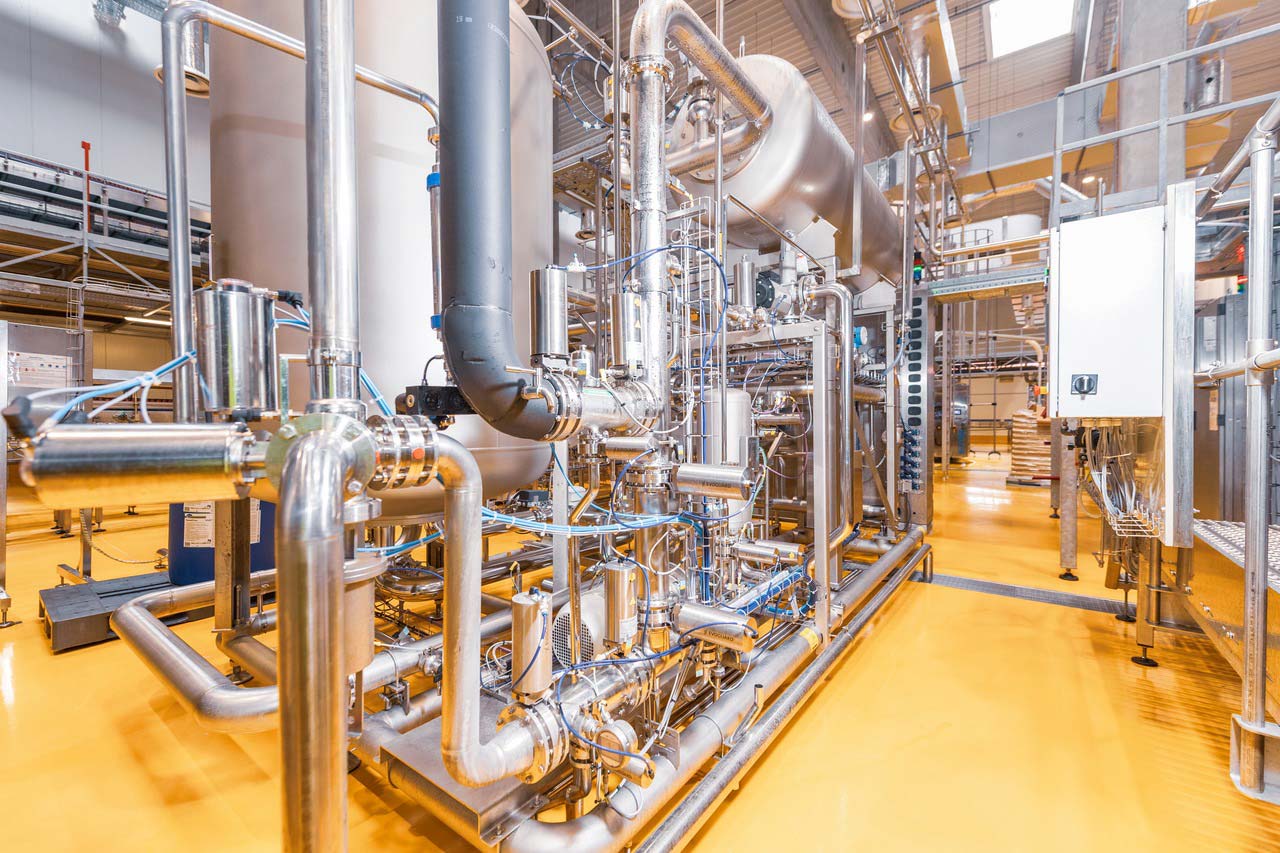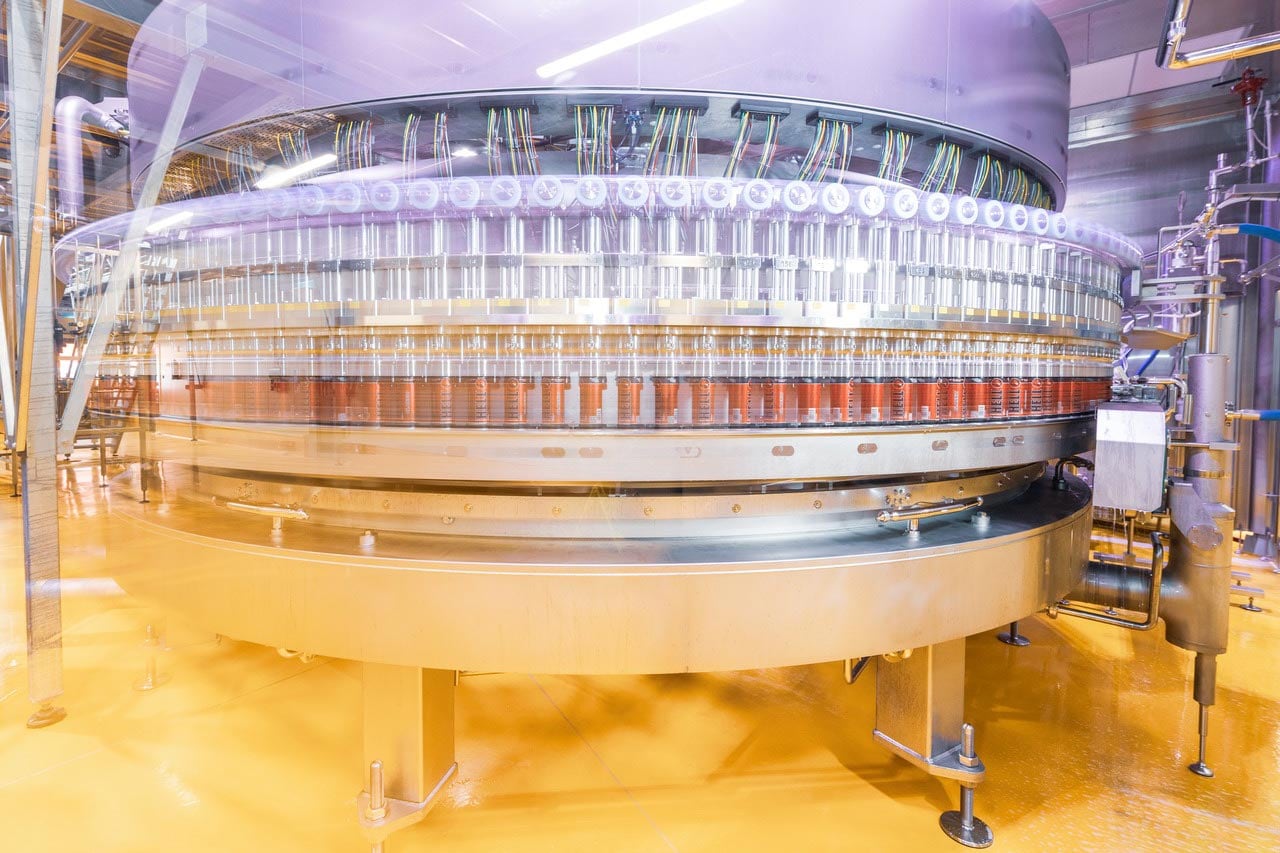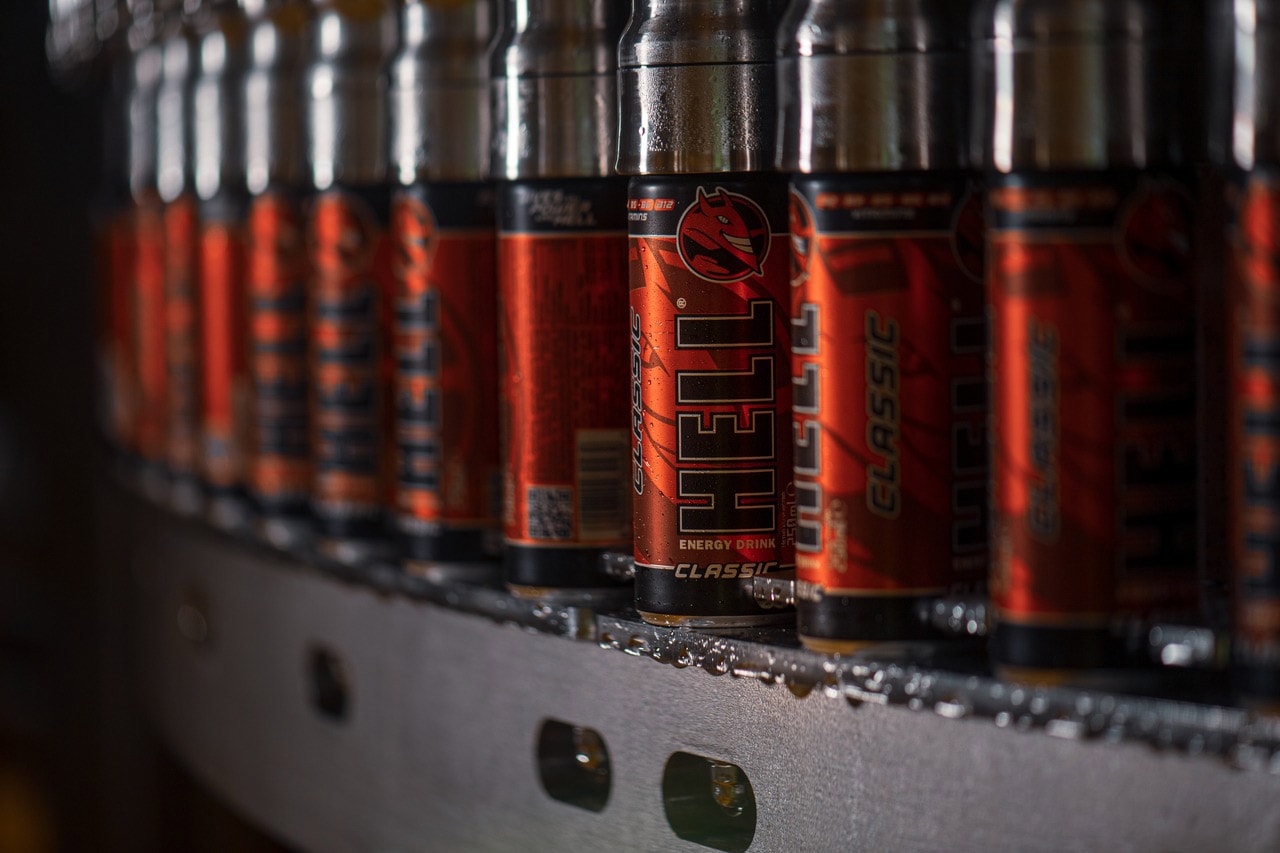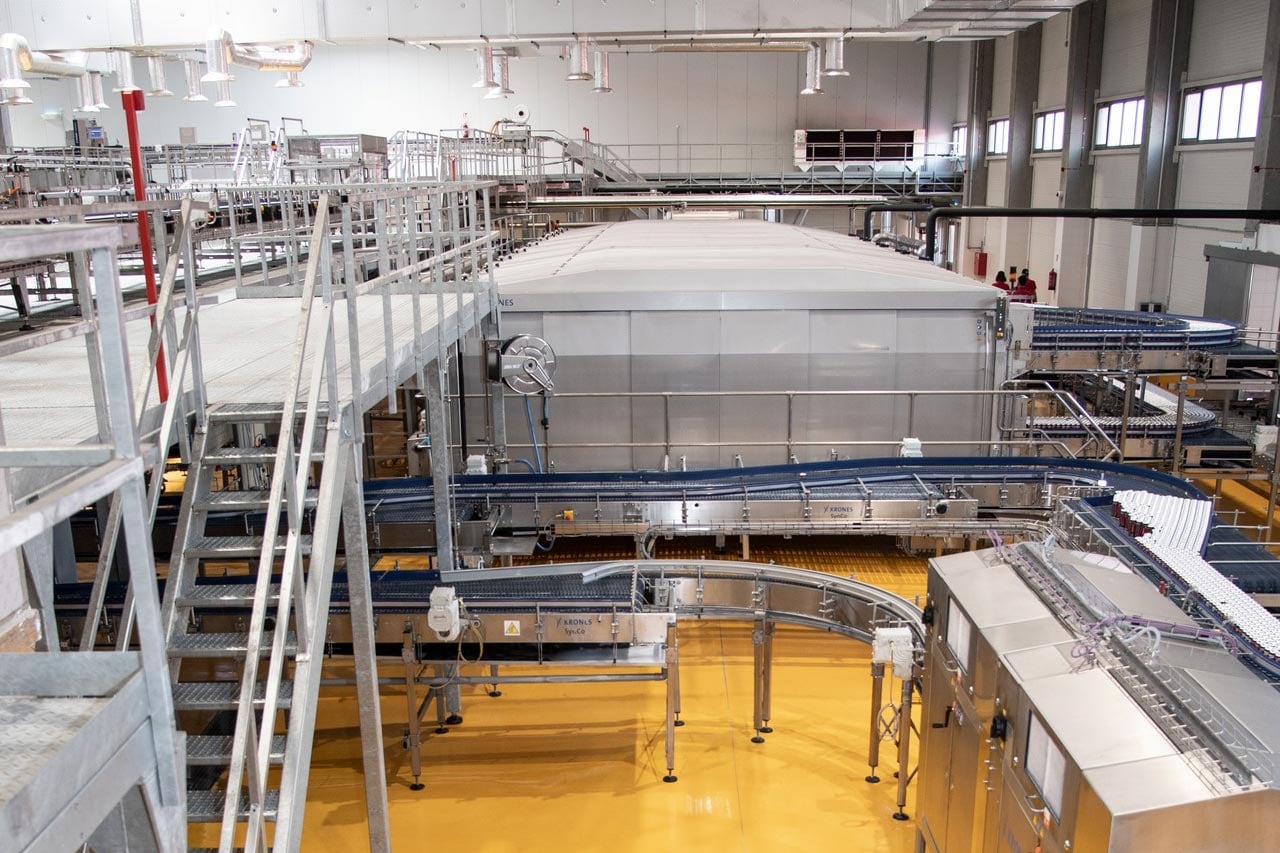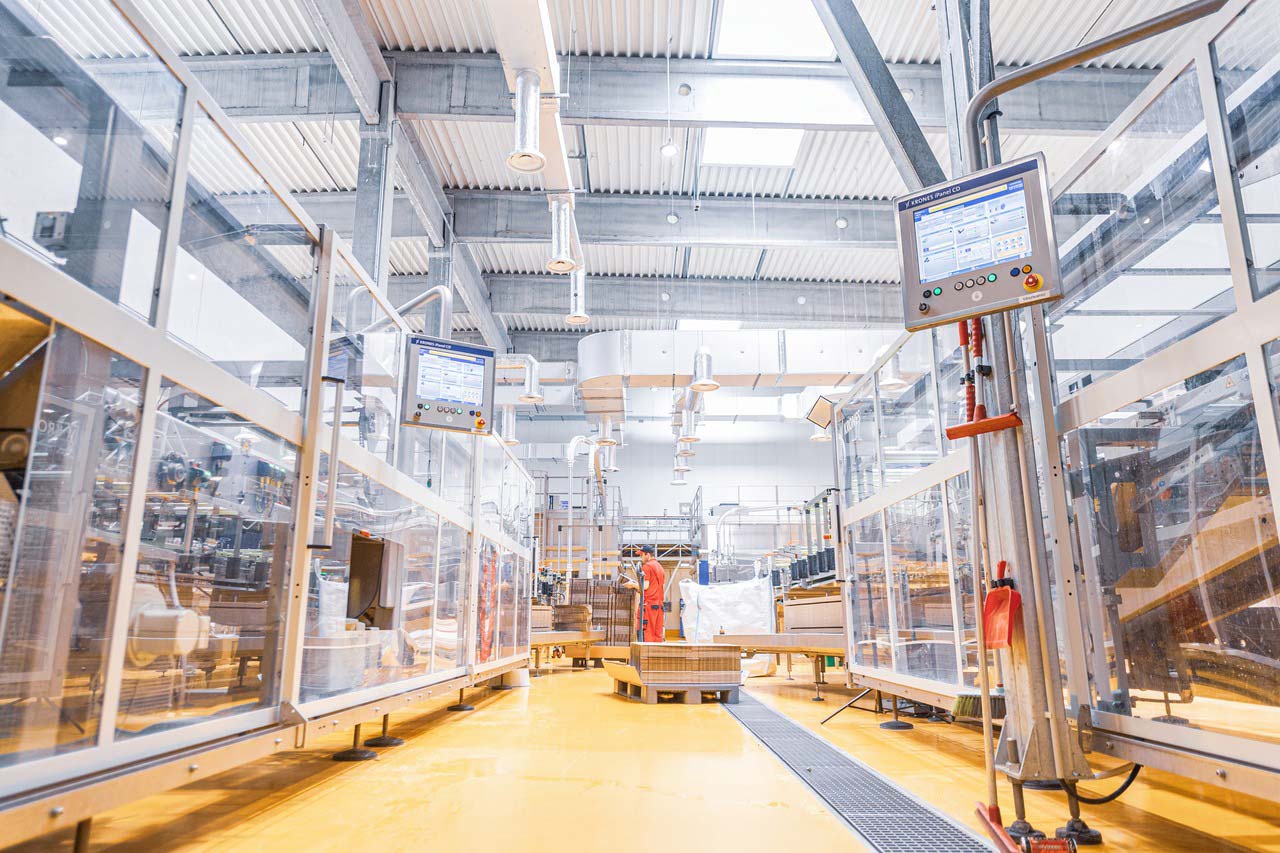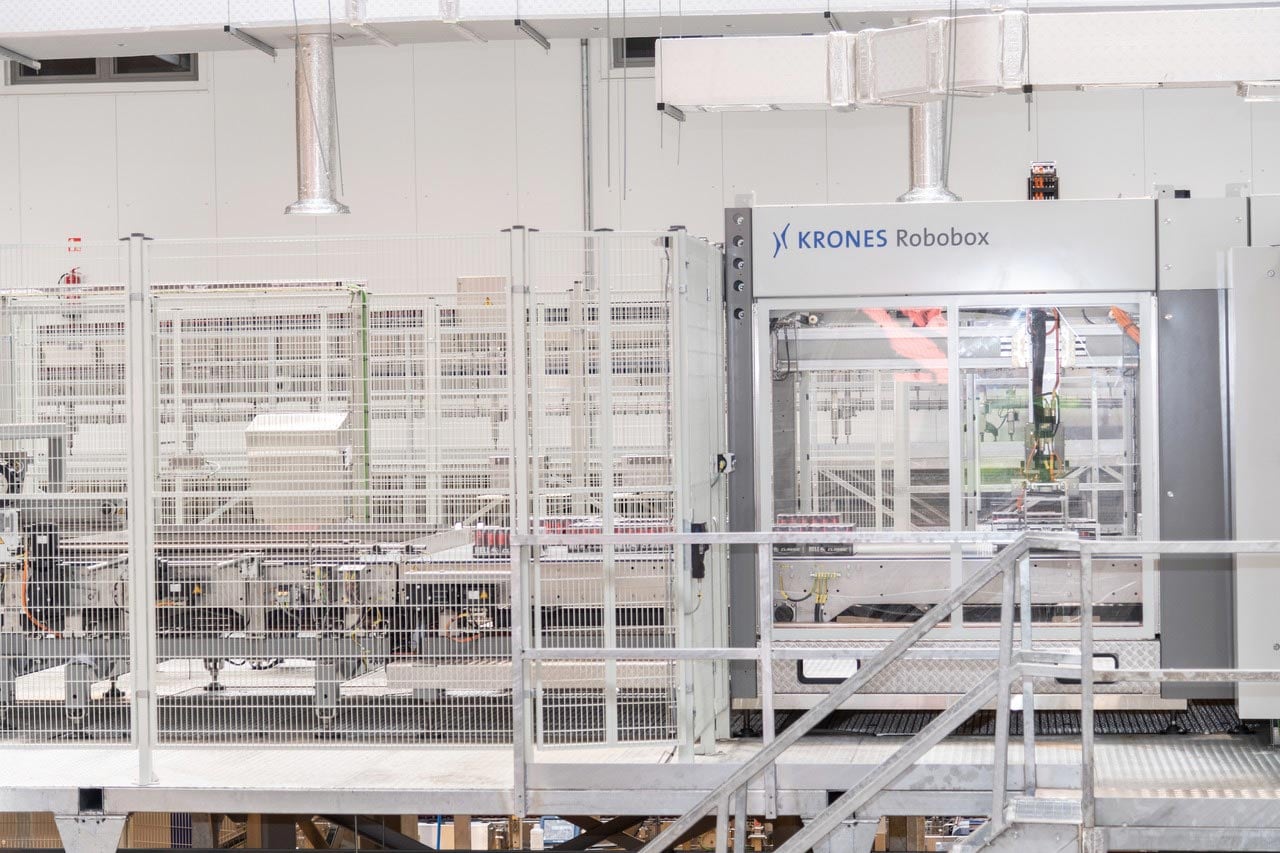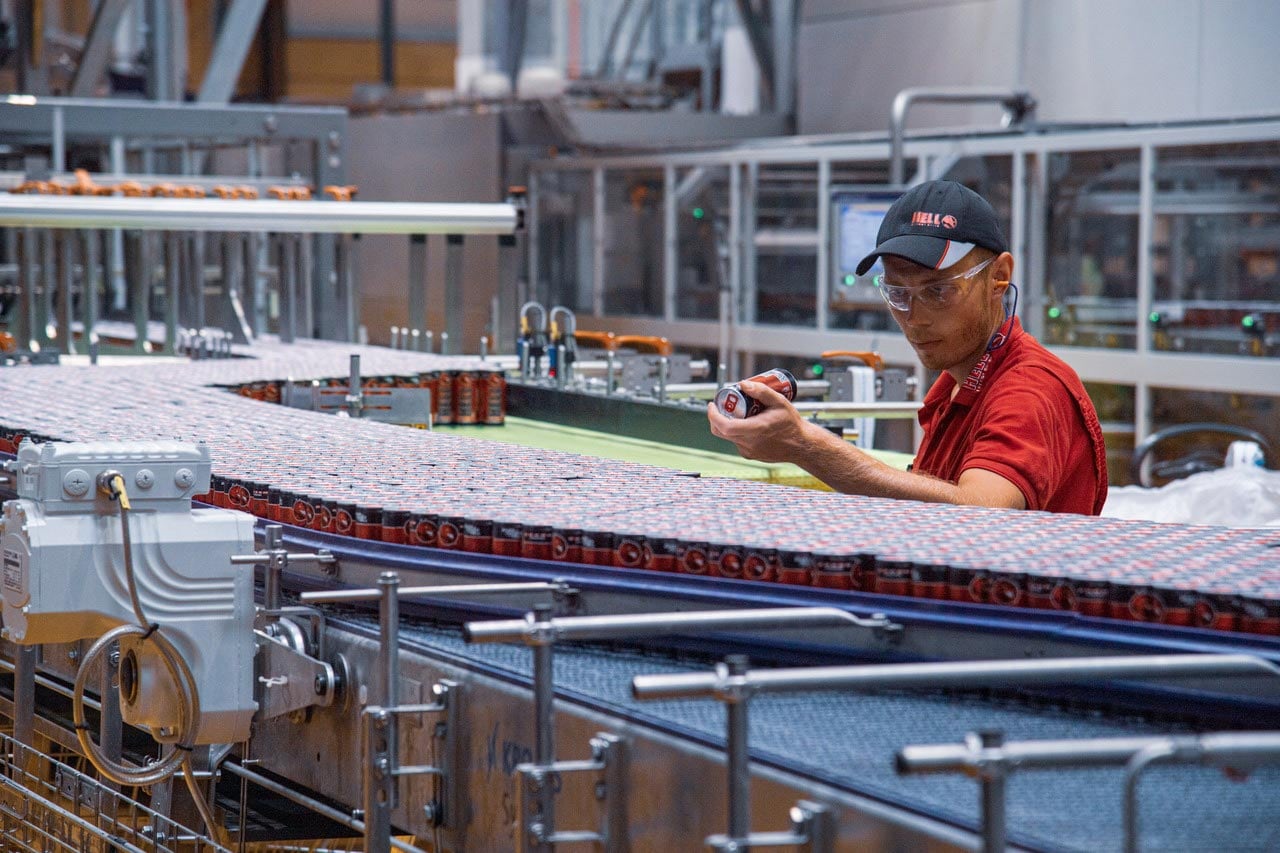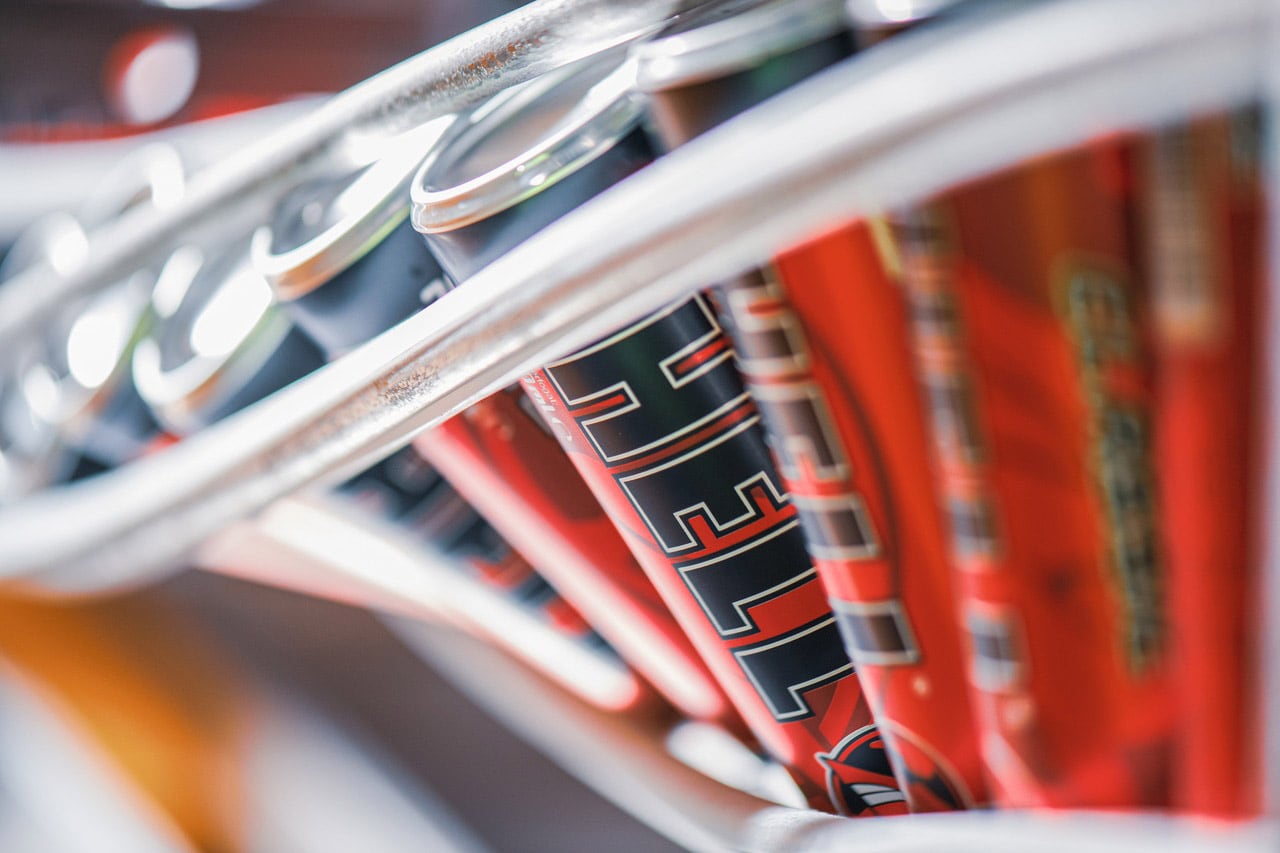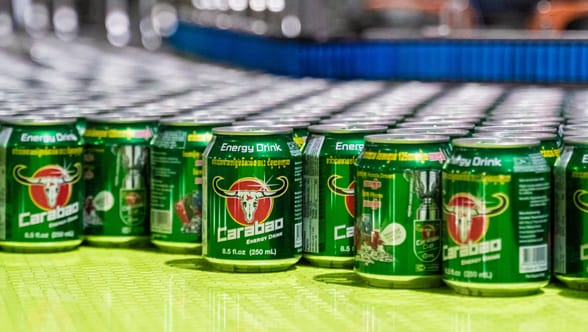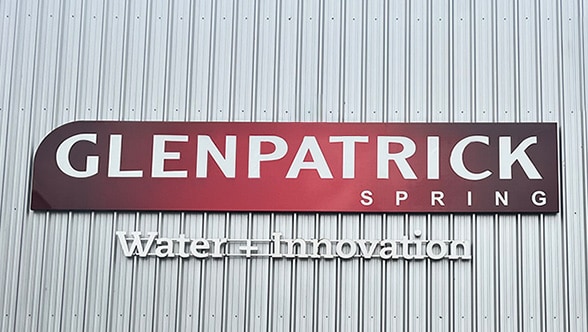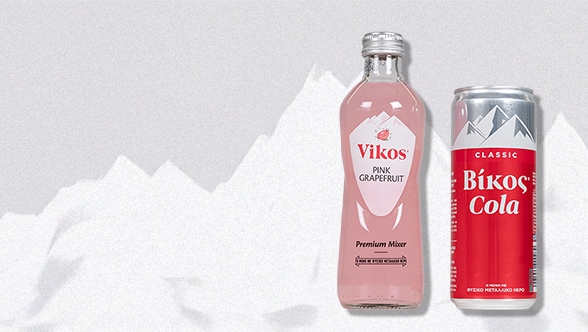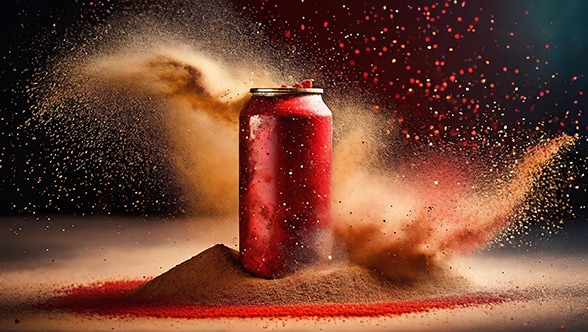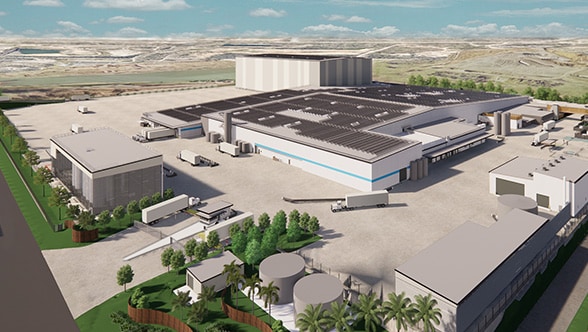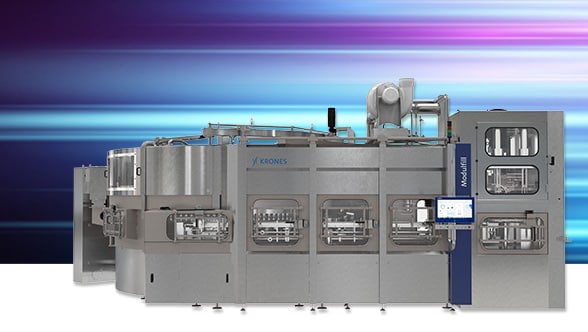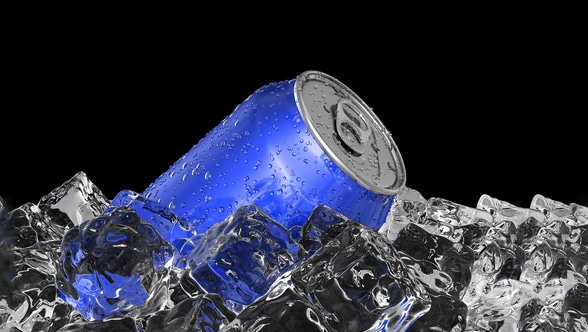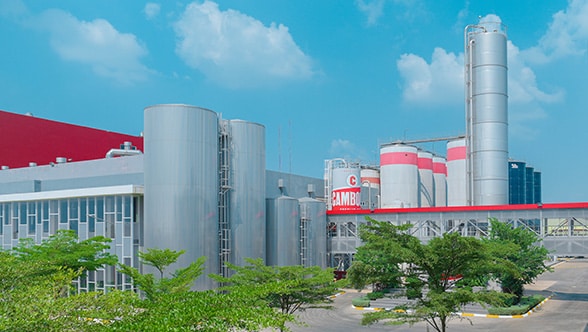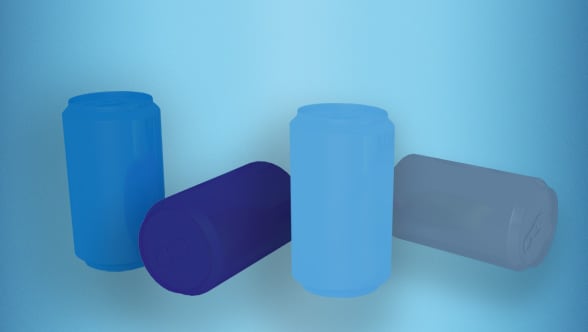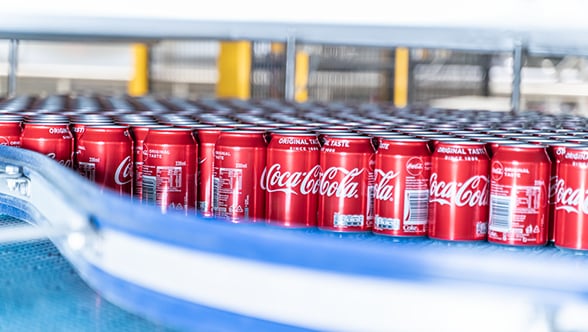Premium quality at an affordable price? At Hell Energy, the two factors are not mutually exclusive. On the contrary. As a result, the company’s energy and soft drinks are conquering the world. Currently available in over 50 countries, they are less expensive than comparable premium products. A well-conceived business model has paved the way for the company’s success. “We have the highest level of vertical integration in the energy drink sector. We cover the entire chain of production in-house: from our own aluminum beverage can factory to one Krones PET line and four filling lines for metal cans – three of them from Krones as well – to a fully automated high-bay warehouse. We also operate our own filling station, mechanic shop and vehicle fleet, maintain an online store, and manufacture our own vending machines,” says Barnabás Csereklye, Managing Director of Hell Energy, adding that “No other company in our sector does all of that in-house.”

